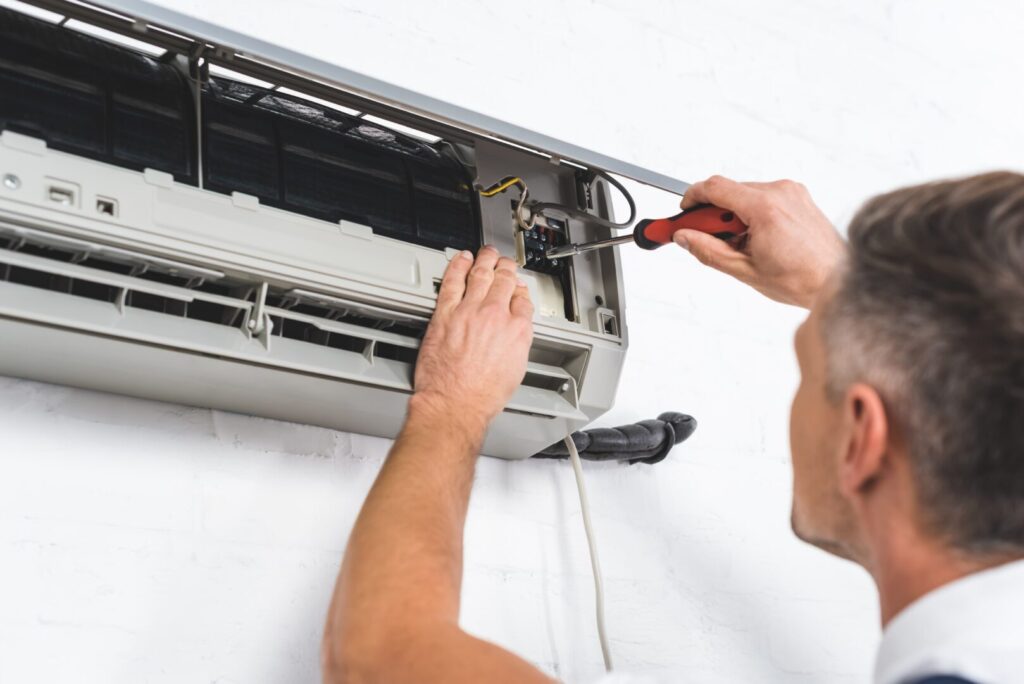
While air conditioners are a staple piece of equipment in Australian households, have you ever wondered – how does an air conditioner work?
With the ability to alter room temperature conditions through their reverse cycle air function, air conditioners create more comfortable living conditions – which is vital in an Australian climate!
To cool or heat a room, air conditioners must demonstrate a key scientific process – converting liquid to a gas, this ultimately allows the machine to absorb heat and transfer the heat outside of the building.
However, the scientific process involves several components within the air conditioner. Allow us to breakdown the science behind how an air conditioner works.
Primary components of an Air Conditioner
Below, we have outlined key components that are integral for Air Conditioning heating and cooling processes:
- A compressor – this component of the machine is comparable to the engine of an air conditioner. The pump enables the machine to process the refrigerants. This function changes the refrigerant pressure from a cool, low-pressure liquid, to a high-pressure gas.
- An expansion valve – ensures that the flow of refrigerant throughout the air conditioning machine is regulated.
- An evaporator – this is a cooling coil which removes humidity and heat from the air inside the room using refrigerant.
- A Condenser – this has hot coils within the unit to release heat collected from the room by transferring to the air outside. This component acts as a pump, moving the refrigerant from the evaporator.
How does an air conditioner work?
By using a compressor, an evaporator, a condenser and an expansion valve listed, air conditioning units pump refrigerant contained within the system through the machine, allowing the it to absorb excess heat.
When heating a room, this process is simply reversed!
Why is it important to know how an air conditioner works?
While we don’t expect you to be an air conditioning specialist (like our team), it’s always good to know the scientific process behind your air conditioning system so you can identify when it may not be working correctly.
We know air conditioning can sometimes be a slow process because the refrigerant must be pumped through the machine before it can heat or cool your space. So, if you think your system is taking a bit of time to affect the room temperature you now know why!
And, if you throw in a buzz word like ‘evaporator’ or ‘expansion valve’ when you’re getting a new system, you receive an impressed nod from our team!
Finding the right air conditioner for your space
When deciding on the most suitable air conditioner it is important to consider which type of unit would be best suited to heat and cool your space. There are numerous benefits to a ducted or a split system air conditioner.
Our team so can assist you with all your air conditioning needs to ensure your home or office remains a comfortable temperature all year round.

